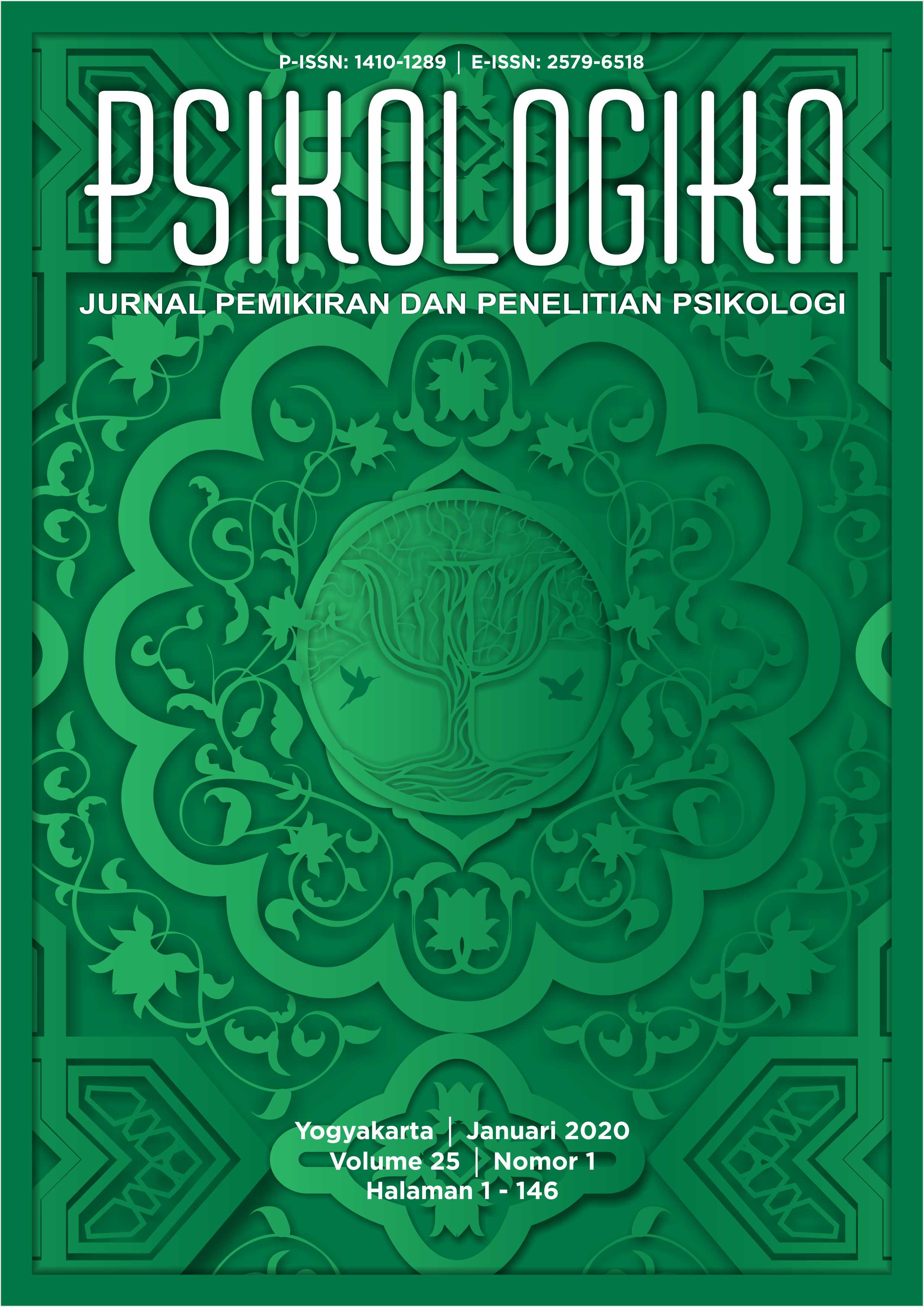Main Article Content
Abstract
Konsep belajar yang diusung humanistik adalah memanusiakan manusia, dan lebih menekankan proses dari pada hasi l belajar. Penel i ti an i ni di lakukan untuk mengetahui pengimplementasian konsep belajar humanistik bagi siswa tahap operasional formal di SMK Miftahul Khair yang berada di bawah naungan pesantren. Penelitian ini menggunakan pendekatan kualitatif deskriptif. Pengumpulan data dalam penelitian ini menggunakan wawancara semi terstruktur dan observasi. Hal itu dilakukan untuk mengetahui validitas dan konsistensi data yang diperoleh. Adapun hasil dari penelitian ini adalah terdapat beberapa strategi yang digunakan guru dalam mengimplementasikan pembelajaran humanistik pada siswa, yaitu: (1) Memberikan respon positif terhadap siswa baik verbal maupun nonverbal, seperti menghargai siswa, memberikan apresiasi (misal pujian), berlaku adil, tersenyum, dan lain-lain; (2) Memberikan cerita inspiratif untuk menumbuhkan serta meningkatkan hasrat dan minat belajar siswa, di mana hal tersebut berdampak terhadap perubahan siswa (meliputi pengetahuan, sifat, dan perilaku siswa); (3) Pemilihan metode belajar yang tepat dan menyenangkan agar proses pembelajaran menjadi bermakna bagi siswa; dan (4) Membuat siswa merasa nyaman dengan tidak memberikan ancaman atau kecaman terhadap siswa, sehingga siswa merasa bebas berekspresi dalam pembelajaran.
Kata Kunci: belajar humanistik, sekolah menengah kejuruan, tahap operasional formal
The Implementation of Humanistic Learning Concept on Students with Formal Operational Stage at Miftahul Khair Vocational School
Abstract. The concept of learning which so called humanistic was humanizing human beings and emphasizes the process rather than learning outcomes. This research was conducted to determine the implementation of the concept of humanist learning for students in the formal operational stage at the Miftahul Khair’s Vocational High School under the auspices of the Pesantren. The study used a descriptive qualitative approach. The data collection, however, used semi-structured interviews and observations. it was done to determine the validity and consistency of the data obtained. The results stated that there were several strategies used by teachers in implementing humanistic learning in students, namely: (1) Giving positive responses to students both verbally and non-verbally such as respecting students, giving appreciation (ex: praise), acting fairly, smil ing, etc.; (2) Provide inspirational stories to foster and increase the desires and interest in student learning, where it has an impact on student change (including knowledge, nature, and behavior of students); (3) The selection of appropriate and fun learning methods so that the learning process becomes meaningful for students; and (4) Make students feel comfortable by not giving threats or criticism to students, so students feel free to express themselves in learning.
Keywords: formal operational stages, humanistic learning, vocational high school
Article History:
Received 31 January 2020
Revised 20 April 2020
Accepted 30 May 2020
Article Details
Authors who publish with this journal agree to the following terms:
- Authors retain copyright and grant the journal right of first publication with the work simultaneously licensed under a Creative Commons Attribution-ShareAlike 4.0 International License that allows others to share the work with an acknowledgment of the work's authorship and initial publication in this journal.
- Authors are able to enter into separate, additional contractual arrangements for the non-exclusive distribution of the journal's published version of the work (e.g., post it to an institutional repository or publish it in a book), with an acknowledgment of its initial publication in this journal.
- Authors are permitted and encouraged to post their work online (e.g., in institutional repositories or on their website) prior to and during the submission process, as it can lead to productive exchanges, as well as earlier and greater citation of published work (See The Effect of Open Access).




